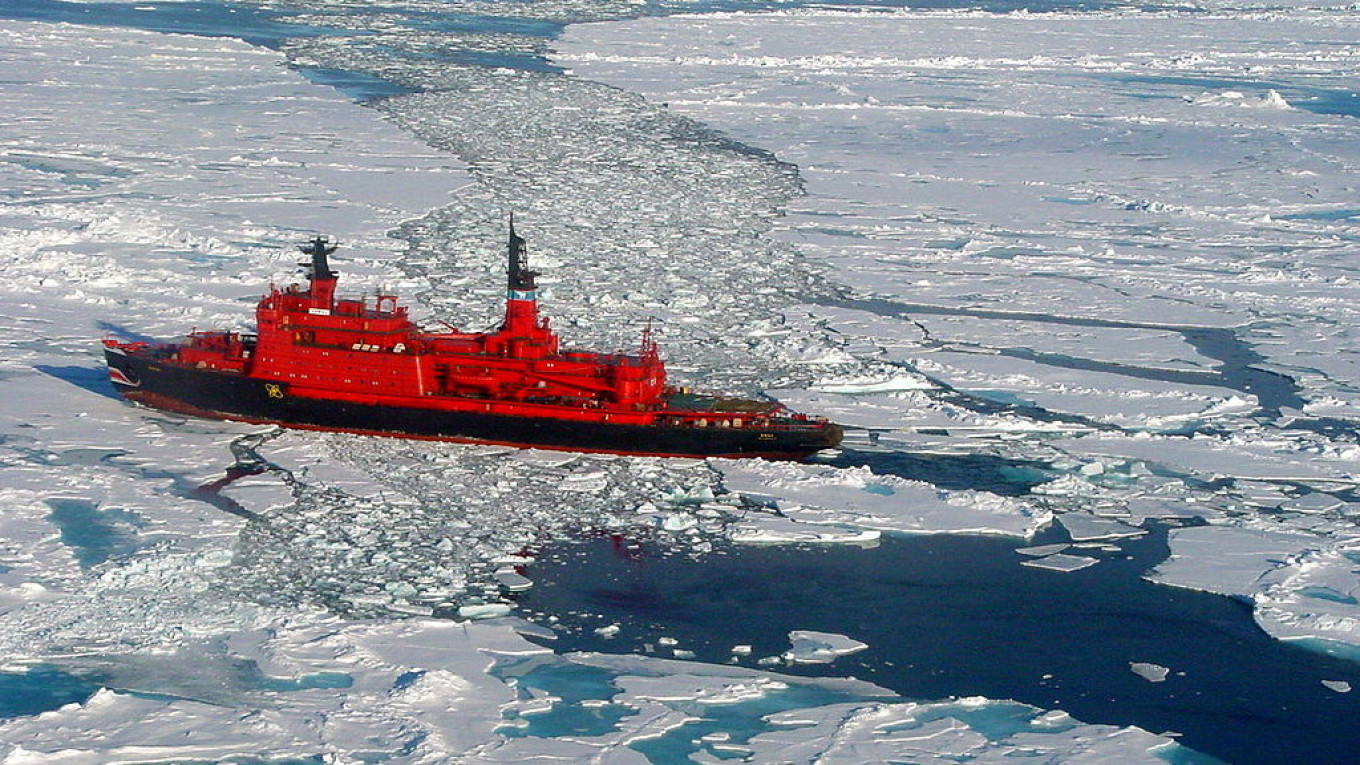
A record number of vessels have in 2020 sailed through Russia’s shipping lane in the rapidly melting Arctic known as the Northern Sea Route, Reuters has reported.
The news agency said Norway’s Center for High North Logistics (CHNL) logistics foundation has recorded 62 full transit voyages through the Northern Sea Route as of Wednesday. Ships sailed 37 times through the route in all of 2019, it said.
The number of ships using the Northern Sea Route also rose from 277 to 331 this year, Reuters cited CHNL data as saying. Russia, China and Canada were said to dominate the Arctic voyages with iron ore, oil and liquefied natural gas.
The record sailings come as the Kremlin places top priority on the Northern Sea Route, which provides a shortcut connection between Europe and Asia. President Vladimir Putin has said he wants to quadruple annual shipments on the route from 20 million metric tons in 2018 to 80 million tons in 2024.
The increase also comes as ice coverage shrinks in the rapidly melting Arctic.
The entire Northern Sea Route was ice-free in the summer of 2019. This year, parts of the Arctic sea ice have failed to freeze at their latest expected point. Experts have told The Moscow Times that, with coverage shrinking by 10% each decade, sea ice could soon cover half the area it did in the late 1970s.
“We see favorable ice conditions in this navigation season as one of the reasons for the growth” in Northern Sea Route navigation, Reuters quoted Sergei Balmasov, CHNL’s head of information, as saying.
Russia is warming more than twice as fast as the rest of the world due to its vast Arctic territories.
Experts warn that increased shipping on the Northern Sea Route carries the risk of oil spills in remote areas that are difficult for responders to reach.
“The region has seen comparatively little shipping traffic compared to other regions of the world,” Reuters quoted Sian Prior, lead advisor at the Clean Arctic Alliance, as saying.
“And the necessary environmental regulation to minimize the impact of increased shipping in the region is incomplete,” Prior said.
